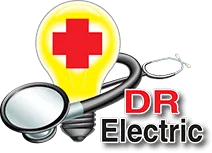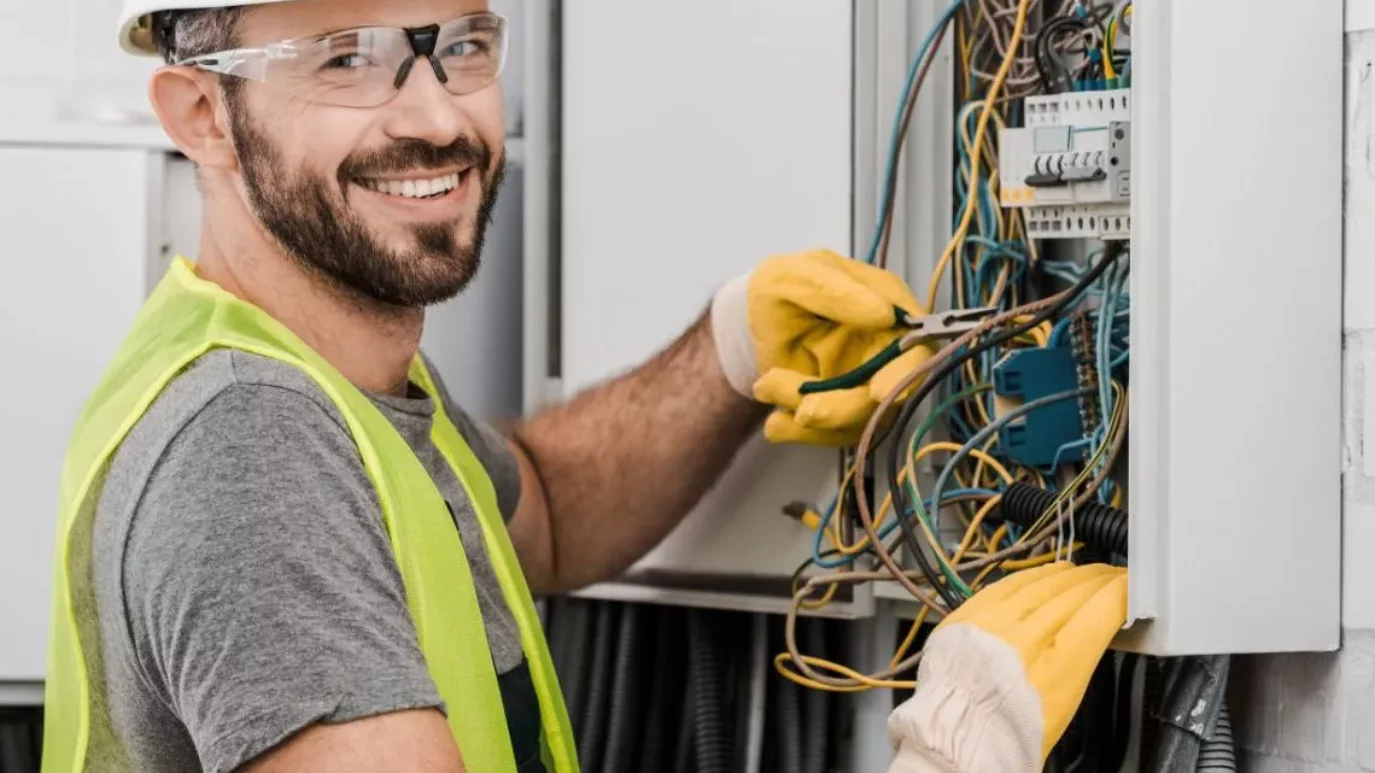When it comes to the safety of your home and your family, cutting corners is not an option.
Imagine this: you’ve attempted a DIY fix or hired an unlicensed handyman for a quick electrical repair, only to find yourself in the dark, quite literally, with a power outage or, worse, a spark that ignites a fire.
Dr. Electric understands that the risks of unqualified electrical work—like electrical fires and the severe consequences of poor workmanship—loom over homeowners, reminding us of the unwavering importance of hiring a licensed electrician. In “Why Hire a Licensed Electrician? Safety & Law,” we’ll plug into the crucial reasons—from mitigating safety hazards to adhering to legal standards—why expert hands should be the only ones tampering with your wires.
What Are the Risks of Hiring an Unlicensed Electrician?
Safety hazards associated with unlicensed electrical work include electric shocks, fires, and damage to home electronics. Unlicensed individuals may lack the proper knowledge to comply with safety standards, increasing the risk of accidents. DIY electrical repairs often lead to fire risks because of improper wiring, overloaded circuits, or faulty connections. These errors can create dangerous scenarios that put the entire household at risk.
The potential legal and financial consequences of poor electrical workmanship are significant. Homeowners may face fines or be required to pay for costly repairs to meet code compliance. In some cases, insurance claims may be denied if the work is not performed by a licensed professional, leaving homeowners to cover the full cost of any damages or losses incurred.
Additionally, unqualified electrical work can negatively impact the resale value of a home, as savvy buyers look to avoid the risks and potential additional expenses associated with correcting substandard electrical systems. To safeguard against these risks, it’s crucial for homeowners to avoid unqualified electrical work and seek out professionals who are licensed and knowledgeable about the local electrical codes and safety requirements.
Why Is It Essential to Comply with Electrical Safety Standards?
Electrical safety standards protect homeowners by ensuring that electrical systems and products are safe and operate correctly, thereby reducing the risk of electrical shocks, fires, and other hazards.
Understanding and complying with electrical codes is vital because it ensures that the electrical work adheres to the best practices established by experts. These codes exist to protect not just the current residents but also future occupants of the property.
Ensuring electrical code compliance is not just about safety; it’s also about legality. Electrical permits and licensing are crucial for home improvement projects because they signify that the work has been planned and executed according to the latest safety protocols and has been inspected and approved by authorities.
This also helps in maintaining the value of your property and ensuring that any future insurance claims related to electrical work are honored. For more information on the importance of compliance, homeowners can refer to resources like Dr. Electric for local Colorado Springs regulations and guidelines.
How Does Insurance and Liability Affect Electrical Work?
Hiring an electrician with liability insurance is important because it provides financial protection against accidents, injuries, or damages that may occur during electrical work. Homeowners should expect coverage for any damage to the property or injury to the electrician while on the job. This type of insurance shields the homeowner from potential lawsuits or having to pay out of pocket for mishaps.
When electrical work results in mishaps, such as a fire or an electrical shock, insurance claims can be made to cover the cost of damages. These claims are processed through the electrician’s liability coverage, which is designed to handle such unfortunate events. Homeowners can gain peace of mind knowing that a licensed electrician’s work is backed by a robust electrical contractor insurance policy. This coverage is crucial because it ensures that both the electrician and the client are protected financially, should anything go awry. It’s a key aspect of responsible home maintenance and improvement, safeguarding one of the homeowner’s most significant investments — their home.
What Qualifications Should You Look For in a Licensed Electrician?
When searching for a licensed electrician in Colorado Springs, the typical licensing requirements include having passed an examination that assesses knowledge of the National Electrical Code (NEC), local electrical codes, and electrical theory.
Electricians must also have a certain amount of hands-on experience. The importance of electrical certification lies in its provision of a standardized measure of an electrician’s competency and commitment to quality assurance. It ensures that the electrician is up-to-date with the latest safety protocols and industry standards.
To verify an electrician’s qualifications and license, you can request to see their state-issued license, which should be current and in good standing. It’s also wise to check with local Colorado Springs authorities or visit reputable sources such as Dr. Electric to confirm that the license is valid.
Additionally, many electricians are happy to provide references or proof of their certification upon request, demonstrating their expertise and reliability in the field. By vetting an electrician’s license and qualifications, you can ensure that your electrical projects are safe, compliant, and completed to the highest standard.
What Are the Long-Term Benefits of Hiring a Professional Electrician?
Professional electricians provide long-term solutions for your home by ensuring that all electrical work is done to current safety and efficiency standards, which can prevent costly issues in the future. Hiring a licensed electrician can be cost-effective as they can accurately diagnose and solve problems, preventing recurring expenses due to ongoing issues or inadequate fixes.
These professionals often come with guarantees on their work, offering homeowners peace of mind that any future issues within a certain timeframe will be addressed without additional costs.
You should expect guarantees and warranties from professional electrical services, which typically cover the quality of workmanship and the materials used. Such warranties ensure that if any electrical component fails or an installation issue arises, it will be resolved by the electrician at no extra charge, within the warranty period. For details on the specific guarantees provided, homeowners can visit Dr. Electric, which can offer insights into service assurances that come with hiring a reputable electrician in Colorado Springs. These long-term benefits underscore the value of investing in professional electrical services for safe, reliable, and enduring home electrical systems.
In this post, we’ve explored the significant risks associated with unlicensed electrical work, including the safety hazards, fire risks, and legal ramifications that come from poor workmanship. We also dove into the importance of adhering to electrical safety standards to protect your home and family, and the undeniable value of electrical permits and licensing in home improvement projects.
Understanding the intricacies of insurance and liability helps ensure you’re covered in the event of an electrical mishap. Additionally, recognizing the necessary qualifications of a licensed electrician allows you to vet professionals effectively, ensuring your home’s electrical system is in capable hands.
Lastly, we’ve highlighted the overarching benefits of investing in a professional electrician — from long-term electrical solutions and cost savings to the peace of mind provided by guarantees and warranties. Hiring a licensed electrician from a reputable company like Dr. Electric is not just a smart choice; it’s an investment in your home’s safety, efficiency, and future.

